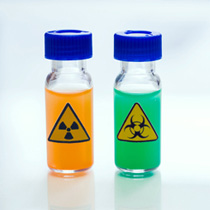
Is your practice interested in becoming licensed to use radiopharmaceuticals? Or, are you interested in becoming an authorized user to administer radiopharmaceuticals? With new radiopharmaceuticals gaining approval from the U.S Food and Drug Administration and more in the pipeline, now is a good time to understand some practical steps to take.
Before starting the process, however, it is important to note that agreement states1 may have different forms or requirements for obtaining a license, and we recommend familiarizing yourself with those requirements to ensure compliance. Links to state radiation protection programs, as well as links to state regulations, can be found on ASTRO’s State Regulatory Library.
- If your practice or facility is already licensed to use byproduct materials, the next step is to discuss necessary license amendments with your radiation safety officer. Compliance requirements differ based on whether you have a broad scope license or a limited scope license:
- If your practice or facility has a broad scope license and changes to the license are needed, including revisions to the list of authorized users, your radiation safety officer can handle those in house. Keep in mind that these changes are subject to review during regulatory inspections.
- If your practice or facility has a limited scope license, you will need to submit the specific training and experience for each proposed user, and the facilities and equipment available to support each proposed use, to the appropriate regulatory agency (either the Nuclear Regulatory Commission (NRC) or the agreement state) for review and approval. If the licensee wishes to make changes, such as adding or removing an authorized user, the regulatory agency must approve the requested change. In this case, the NRC has forms for licensees to fill out, while agreement states may have their own forms, so it is important to contact your state’s radiation protection program to find out what forms are applicable to your situation.
- If your practice or facility is not already licensed to use byproduct material, you must submit an application to the NRC or your agreement state. Fees are assigned to each license type as are program codes for medical facilities, practices and laboratories.
- Review of all training and experience requirements found in 10 CFR 35, Medical Use of Byproduct Material is important. The training and experience requirements specific to radiopharmaceuticals can be found in 10 CFR 35.390, Training for use of unsealed byproduct material for which a written directive is required. If you are in an agreement state, you will also need to review any additional requirements from your state’s radiation protection program.
- Reviewing the NRC’s NUREG 1556 Volume 9, Rev. 2, “Program-Specific Guidance About Medical Use Licenses,” will provide background on all the information that should be submitted to support a new license, amendment or renewal of a medical use license.
- The NRC’s list of frequently asked questions and the Medical Uses Licensee Toolkit gives invaluable information.
ASTRO believes that it is important for radiation oncologists to expand their scope of practice to include radiopharmaceuticals. ASTRO has worked with Congress and the NRC to ensure that appropriate training and experience requirements for radiopharmaceuticals remain intact.
If you have any questions, please contact Cindy Tomlinson.


